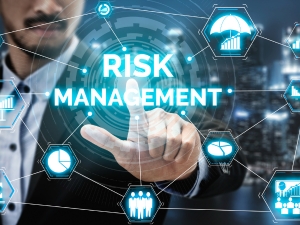Project Risk Management
Course Overview

Project risk management involves identifying potential risks associated with a project, assessing their likelihood and impact, and developing strategies to mitigate or manage them effectively. In our project risk management training program, we’ll explore the fundamental concepts and practices necessary for identifying, assessing, and mitigating risks in project environments.
From understanding the intricacies of risk analysis to implementing proactive strategies, you’ll learn the tools needed to navigate uncertainties and ensure project success. By proactively addressing risks, project teams can minimize disruptions, optimize project outcomes, and enhance overall success. Join us to learn the core principles of project risk management, empowering you to safeguard your projects in today’s dynamic business landscape.
Goal of Course:
Customized Learning
Leap To Success is offering a variety of learning options to meet current realities and can be adapted to suit your business needs. These options include variants of online, blended and on-site course formats.
Face To Face Learning
Enabling you to have a face to face interactive and engaging learning experiences led by renowned industry experts and thought leaders with extensive practical experience who will employ a variety of interactive learning techniques, including short high-impact videos, case studies, assessments, role plays, in addition to on-going support.
Virtual Learning Labs
Interactive online learning held in real-time using Zoom and are led by international subject matter experts who incorporate case studies, breakout rooms, guided practice, simulations and discussions to maximise your learning experience.
General Methodology
Similar to any L2S training program, this program offers an interactive learning experience in which will allow the delegates to reflect on their learning through an informative, indulging, and fun classroom experience. The design of the training session focuses on the following attributes.
- Concrete Experience: The delegates will learn by doing
- Reflective Observation: Reflecting on the newly experienced skill-set
- Abstract Conceptualization: Developing deeper understanding to the learned concepts
- Active Experimentation: providing the delegates with realistic tools that can be tested in the real life
Sign Up For the Course
